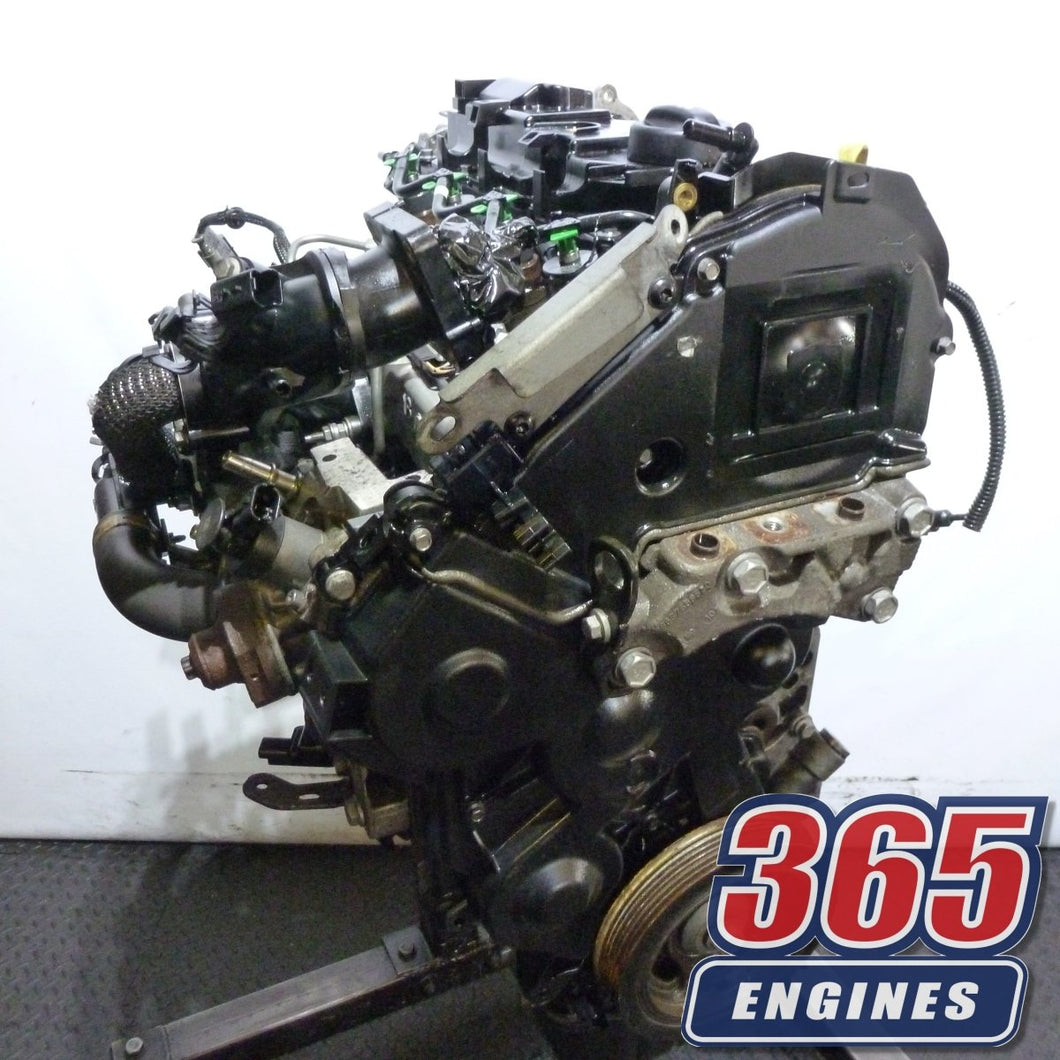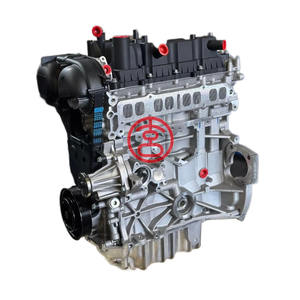Upgrade Your Ford Fiesta Engine for Better Fuel Economy and Power
Upgrade Your Ford Fiesta Engine for Better Fuel Economy and Power
Blog Article
The Future of Engines: Advancements Driving Sustainable Power Solutions
As the auto market navigates the essential change in the direction of sustainability, the future of engines is significantly defined by groundbreaking technologies. Electric engine innovations, along with promising growths in hydrogen fuel cells and biofuels, are improving the landscape of power services. The development of hybrid systems better complicates this advancement, providing both possibilities and difficulties to reduce exhausts properly. Paired with the integration of man-made intelligence in engine layout, these technological strides raise critical questions regarding their long-term viability and effect on standard paradigms. What might this mean for the industry and customers alike?
Electric Engine Advancement
The evolution of electrical engine advancements represents a crucial shift in the automotive and aerospace markets, driven by the urgent requirement for lasting options to nonrenewable fuel sources. This transition is characterized by considerable advancements in battery innovation, power electronic devices, and electric motor style, which jointly improve the performance and performance of electrical engines.
Recent advancements have actually brought about the development of lighter, a lot more energy-dense batteries, such as lithium-silicon and solid-state batteries, which guarantee longer ranges and much shorter billing times. Furthermore, enhancements in electric motor performance, such as the use of long-term magnets and progressed cooling systems, make it possible for electric engines to run successfully under differing conditions. These improvements not just improve automobile efficiency however additionally add to a decrease in overall energy intake.
Moreover, the assimilation of sophisticated software program formulas has actually enhanced energy monitoring in electrical cars, enabling for regenerative stopping and predictive billing techniques. As suppliers progressively accept electric propulsion, the aerospace and automobile industries are witnessing a standard shift towards greener innovations. This development not only satisfies regulatory needs however also straightens with consumer choices for eco-friendly transport services, solidifying electrical engines as a foundation of future sustainable wheelchair.
Improvements in Biofuels
As the automotive and aerospace markets increasingly prioritize sustainable power resources, developments in biofuels become a complementary option to electrical engines. Biofuels, obtained from organic materials such as plants, waste, and algae, offer an innovative opportunity for reducing greenhouse gas discharges and dependence on fossil gas.
Recent study has concentrated on improving the performance and sustainability of biofuel production. Second-generation biofuels make use of non-food feedstocks, decreasing competitors with food supply and reducing ecological effect. Advancements in synthetic biology have actually made it possible for the design of microbes to generate biofuels more efficiently, leading to higher yields and lower production prices.
Additionally, the advancement of drop-in biofuels permits smooth integration right into existing facilities, making it possible for a smoother shift for markets commonly reliant on fossil gas. ford fiesta engine. These gas can be made use of in existing engines without adjustments, promoting their adoption across various sectors
Investments in biofuel technology, along with supportive plans, are important to drive innovation and scalability. As the global community looks for to deal with climate change, biofuels use a practical, prompt option that straightens with the overarching goal of sustainability in transport and aviation.
Hydrogen Gas Cell Technology
A growing number of firms and researchers are exploring hydrogen fuel cell modern technology as a practical alternative to traditional power sources in transportation and energy systems. This technology converts chemical energy from hydrogen into power via an electrochemical reaction, with water as the only by-product, making it an eco-friendly choice.
The core of hydrogen gas cells is the gas cell pile, where hydrogen molecules are split right into protons and electrons. The flow of electrons creates electrical power, while protons move via a membrane layer to combine with oxygen from the air, creating water. This procedure causes high performance and low emissions, placing hydrogen gas cells as an essential gamer in the change to lasting power.
Considerable developments have been made in enhancing the resilience and performance of gas cells, alongside lowering costs through ingenious manufacturing methods. The advancement of hydrogen manufacturing methods, such as electrolysis powered by renewable energy sources, boosts the sustainability of the total system. As infrastructure for hydrogen refueling expands and manufacturing methods end up being much more effective, hydrogen gas cell modern technology holds excellent guarantee for decarbonizing various industries, including heavy-duty transportation and fixed power generation.
Hybrid Equipments and Their Effect
Crossbreed systems represent a considerable advancement in lasting engine modern technology, combining visit the website standard inner combustion engines with electric propulsion to optimize energy efficiency and minimize exhausts (ford fiesta engine). This dual strategy allows automobiles to use both source of power, making it possible for greater versatility in power intake and minimizing reliance on nonrenewable fuel sources

In addition to environmental benefits, crossbreed systems supply customers a feasible transition in the direction of fully electrical cars. They ease range stress and anxiety by incorporating the convenience of gas with the advantages of electric propulsion, making them an attractive choice for a broader audience.
The Function of AI in Engine Layout
Leveraging innovative formulas and artificial intelligence techniques, the vehicle sector is significantly incorporating synthetic intelligence (AI) right into engine style processes. AI improves the efficiency and efficiency of design by examining vast datasets to recognize optimal configurations and efficiency specifications. This capability allows designers to simulate numerous operating conditions and anticipate engine behavior under numerous scenarios, substantially decreasing the time and expense linked with traditional prototyping techniques.
Additionally, AI assists in the advancement of innovative materials and combustion procedures tailored for sustainability. By optimizing fuel effectiveness and decreasing exhausts, AI-driven styles straighten with international campaigns aimed at lowering the carbon impact of auto engines. Artificial intelligence formulas can additionally anticipate maintenance needs, causing enhanced dependability and long life of engine components.
Furthermore, AI contributes in the combination of electrification technologies, such as crossbreed systems, where it can optimize battery administration and power recovery processes. As the sector moves towards more sustainable power remedies, the role of AI in engine style ends up being significantly essential, driving innovation and boosting the efficiency of future engines. Eventually, the cooperation in between AI and engine style declares a brand-new age of smarter, cleaner, and much more efficient automotive modern technologies.

Final Thought
To conclude, the future of engines is being shaped by a merging of cutting-edge modern technologies that prioritize sustainability. Electric engine developments, biofuel growths, hydrogen gas cells, and crossbreed systems collectively add to a substantial reduction in discharges and ecological effect. In addition, the assimilation of fabricated knowledge in engine navigate to these guys style boosts efficiency and performance. These transformative solutions underscore a dedication to producing a cleaner, extra lasting auto landscape, inevitably benefiting both society and the environment.
Electric engine improvements, along with promising developments in hydrogen fuel cells and biofuels, are improving the landscape of power remedies. In addition, enhancements in electric motor efficiency, such as the use of irreversible magnets and progressed cooling down systems, make it possible for electrical engines to operate effectively under differing problems. By enhancing fuel efficiency and minimizing exhausts, AI-driven styles align with international campaigns intended at decreasing the carbon impact of vehicle engines. As the industry relocates in the direction of even more sustainable power remedies, the Look At This function of AI in engine layout ends up being progressively vital, driving innovation and enhancing the performance of future engines. Electric engine developments, biofuel developments, hydrogen gas cells, and hybrid systems collectively add to a significant decrease in emissions and ecological effect.
Report this page